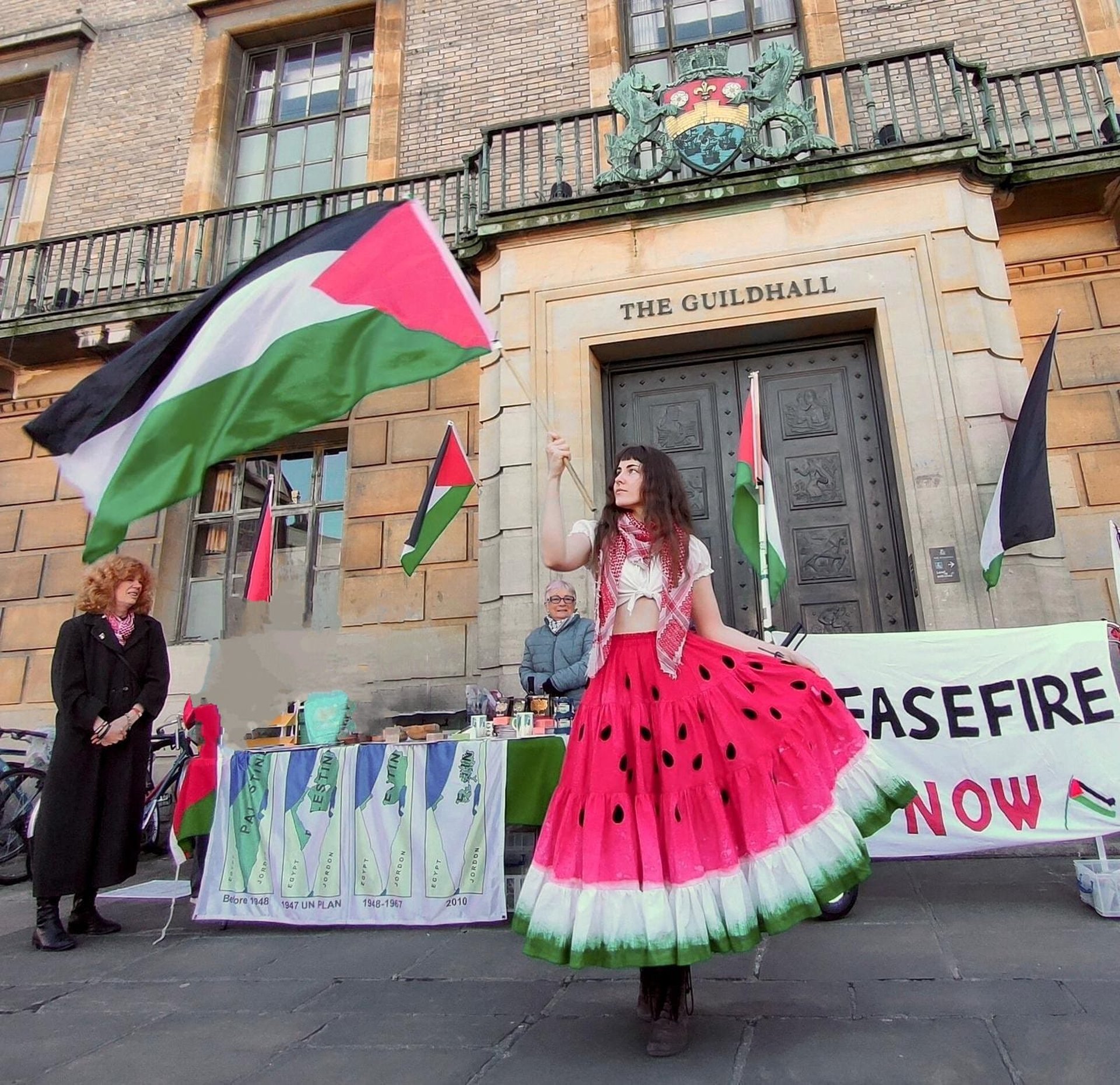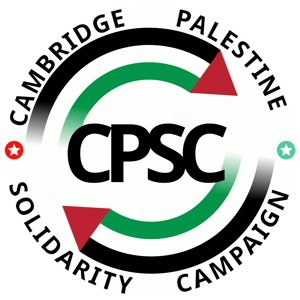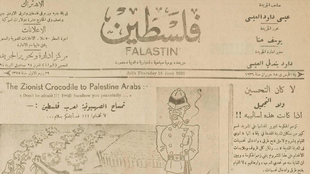
· Formation and Early Activities: The Cambridge Palestine Solidarity Campaign (PSC) was established in 1991, with significant involvement from local citizens and university members. They organized stalls, public meetings, and campaigns to raise awareness about Palestinian issues.
· Reactivation in 2000: The campaign was revived in 2000 by Slim Piggott and Jane Tienne, focusing on public education and countering media narratives. They faced opposition but continued their efforts. Over the years, Cambridge PSC hosted numerous events, including film festivals, public talks, and exhibitions. Notable speakers included Reem Kelani, Ghada Karmi, and Roger Waters. Recent Activities: The group continues to be active, supporting the Boycott, Divestment, and Sanctions (BDS) movement and collaborating with other local activist groups. They also engage in educational outreach and advocacy.
· Origins of the Boycott Movement: The Israeli Boycott movement began after the establishment of Israel in 1948, which led to the displacement of Palestinians and ongoing conflicts, particularly after the 1967 Six-Day War.
· BDS Movement: The Boycott, Divestment, Sanctions (BDS) movement, started in 2005 by Palestinian civil society organizations, aims to end Israeli occupation, achieve equal rights for Palestinians, and recognize the right of return for Palestinian refugees· The BDS movement has received mixed reactions, with supporters advocating for peaceful protest against Israel’s policies and critics accusing it of anti-Semitism. Various countries have enacted laws to counteract the movement. Current Status and Future Prospects: The BDS movement continues to gain visibility and support, despite facing opposition and legal challenges.
· Palestinian history highlights the complex and multifaceted nature of the Palestinian struggle, spanning historical, political, and social dimensions. Late 19th and Early 20th Centuries: The concept of a Jewish homeland in Palestine, known as Zionism, gained momentum. Meanwhile, Arab nationalism was also on the rise. 1947 UN Partition Plan: The United Nations proposed dividing Palestine into separate Jewish and Arab states, with Jerusalem under international control. The plan was accepted by Jewish leaders but rejected by Arab leaders.
· 1948 Arab-Israeli War: Following the declaration of the State of Israel, a war broke out. Israel expanded its territory beyond the UN partition plan, and many Palestinians became refugees. The Palestinian struggle against the Israeli occupation remains a deeply complex issue, marked by ongoing negotiations, resistance, and international attention.
Gabriele said, "Special thanks to everyone at the CPSC for being so fabulous, committed, inclusive, and inspiring. You are amazing."


























